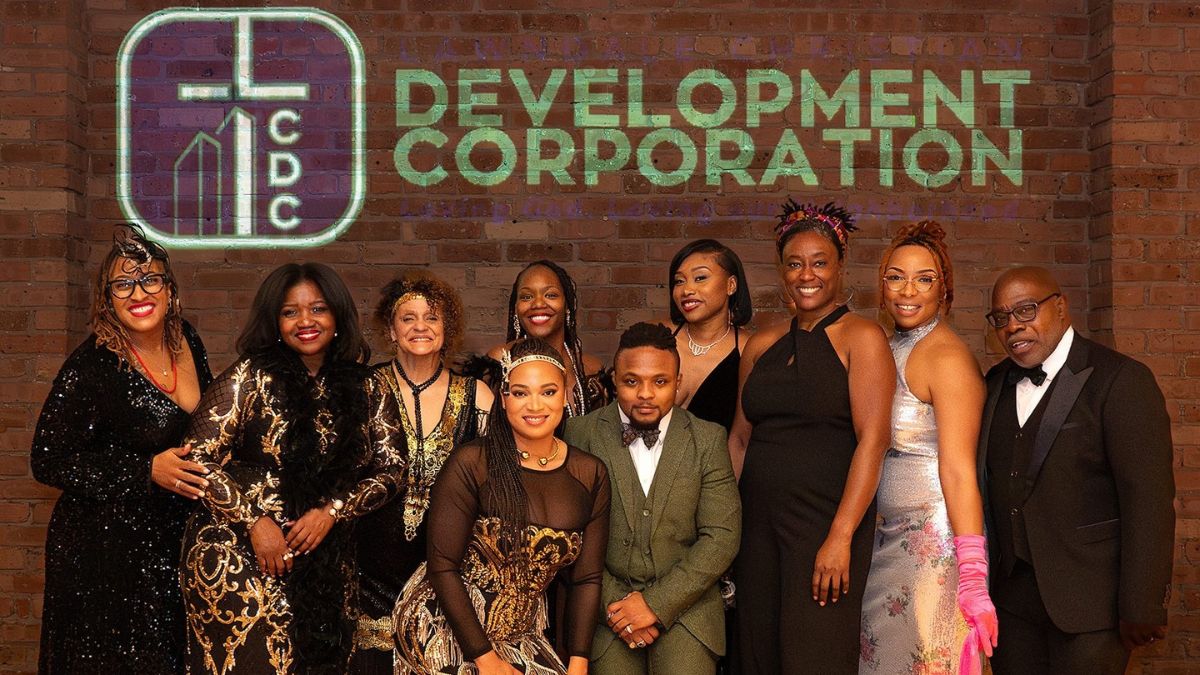Photo Credit: lcdc.net
Two critical projects from the Lawndale Christian Development Corporation (LCDC) are among the finalists for the prestigious Chicago Prize—and for Executive Director Dr. Richard Townsell, the recognition is humbling, hard-earned but part of a bigger picture.
“One is energizing the economic ecosystem for North Lawndale, which is where I live. The other is the Reclaiming Chicago campaign, where our goal is to build 2,000 homes on the South and West sides.”
“It’s on some level, a testament to our hard work and strategy that we’ve been putting together to uplift everyday people in our neighborhoods,” said Townsell, a 2025 Chicago Defender Men of Excellence honoree.
In an era where economic development in Black and Brown neighborhoods often spells displacement for residents, LCDC’s plans offer a different proposition. They invest in the people who already live in these neighborhoods. For Townsell, it’s about keeping the dollars local, giving residents an equity stake in the growth, and allowing them to experience opportunity right where they live.
“Our goal is to attract our folks to be able to own businesses that employ locally, and we spend our dollars locally in North Lawndale,” said Townsell. So that’s the reason behind our fire because we live here.”
A Vision for 1600 South Lawndale
Dr. Richard Townsell
The centerpiece of LCDC’s North Lawndale plan is a 9,000-square-foot business hub at 1600 S. Lawndale. The idea is to build up the local economy in the West Side neighborhood and reverse the trend where millions of dollars leave the community. In fact, he cited a 2022 University of Illinois Chicago Great Cities Institute study that reported that $124 million leaves North Lawndale every year in the form of people who make their money there, but live elsewhere or residents who must leave to get basic necessities or go out to eat.
With the hub, it’s about bringing businesses back to North Lawndale so that people don’t have to leave if they want to shop or eat out.
“We’re going to have the Soul Food Lounge—best soul food in the city, run by Chef Quentin Love,” said Townsell. “We’ve got a neighborhood outreach center with UIC. We’ve got Art West, a local gallery, moving in. And then there’s the Chicago Chocolate Rebellion, a worker-owned cooperative.”
That last venture, he noted, is especially important. The cooperative will import cocoa from Black women growers in Uganda, Ivory Coast and the Caribbean. That cocoa will be turned into chocolate and sold in North Lawndale, flipping the usual narrative about who profits from a global supply chain.
“Everybody thinks about Switzerland and the Swiss for chocolate—where they don’t grow any cocoa,” Townsell said. “This is about fair prices, about Black women, and about keeping wealth in the neighborhood.”
Ownership Over Outsiders
And speaking of keeping things local, Townsell said co-ops like the LCDC’s are crucial in reversing the legacy of disinvestment and displacement in Black and Brown communities by empowering local businesses rather than bringing in outside companies.
“We spend so much time trying to attract Amazon or Whole Foods, but what about building something ourselves?”
He cites an example not too far from North Lawndale: 26th Street in Little Village, where a thriving Mexican-owned business district offers a blueprint. “Why don’t we have anything like that in Black Chicago?” Townsell asked. “Let’s build it.”
What Transformation Looks Like
Townsell sees the Chicago Prize recognition as a springboard for broader transformation.
Beyond 1600 S. Lawndale, the proposal includes:
- A business innovation hub supporting 80 Black-owned startups
- A Children’s Discovery Center
- “Sheila’s @ Douglass 18,” a food vending space at a local mini-golf course
- North Lawndale Employment Network’s pollinator pavilion for beekeeping and honey sales
But the real impact, he said, lies in changing what young people believe is possible.
“You can only be what you can see,” Townsell said. “We want kids to know they don’t have to leave the neighborhood to be great.”
A Future Built by the Community
LCDC is already planning its next phase: a 126,000-square-foot recreation center, a trade school in partnership with City Colleges, and hundreds of affordable homes. For Townsell, it’s a response to skyrocketing rents in surrounding areas like the West Loop.
“I go to work every day, and I can’t afford a $3,000 apartment,” he said. “We have to carve out space for working people. We have to stop chasing the bag and start thinking about regular folks.”
Beyond Wealth, Toward Justice
As he looks to the future, Townsell is thinking beyond real estate. He’s concerned about homelessness, about neighborhood schools, and about what’s being left behind in the rush for flashy development.
“We as Black folks need to quit having all these summits and talking about all this wealth creation nonsense that we’re not spending any time really thinking through what we’re going to do about education and homelessness,” he said.
Because at the heart of it, Townsell believes, “our work is about making sure that regular people can stay.”
